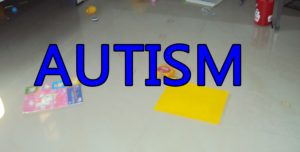 As parent, we are always concern to our child. If we notice something strange to our child, we always compare it to other child at the same age and we can conclude that there is something wrong with our child. Autism is a condition that difficult to understand because it varies from person to person so here are some basic information to help you spot early signs in your child:
As parent, we are always concern to our child. If we notice something strange to our child, we always compare it to other child at the same age and we can conclude that there is something wrong with our child. Autism is a condition that difficult to understand because it varies from person to person so here are some basic information to help you spot early signs in your child:
What is Autism?
Autism spectrum disorder (ASD) is a mental condition that cause by differences in the brain that affects development of a child in terms of areas such as behavior, social skills and relationships, language and intelligence. The condition is range from mild to very severe that is why it is a spectrum disorder. Boy is five times more likely to be diagnosed with ASD than girls. A child or a person with autism behave, communicate, interact and learn differently from most people.
What are the causes of ASD?
The causes of autism still unknown but some expert thinks that is a genetic condition that develops during early pregnancy due to some factors such as genetics, parent’s age and environmental toxins and others. Some researcher suspected that vaccine can cause autism but up to present there is no evidence about their findings.
Early Signs and Symptoms of Autism
Signs and symptoms of ASD usually show up at age 2 years old and above. Some babies with autism develop normally and then stop gaining new skills and losing the one they already have.
Red Flags
- Not responding to his/her own name
- Not pointing on object such as on plane on the sky, dog on the street, etc.
- Not pretending games such as feeding a doll or driving a car
- No eye contact
- Delayed speech and language skills
- Repeats words over and over again
- Has obsessive interest such on numbers, shapes, letters, colors, etc
- Trouble understanding other’s feelings
- Flaps hands, run on the circles or rock his body
- Lining toys or objects excessively
- Playing toys the same way every time
- Very sensitive or not sensitive at all to smells, sounds, lights, texture or touch
- Unable to feel pain
- Playing with parts of the toys instead of the whole toy such as spinning the wheels of the car
Treatment for Autism
Autism Spectrum Disorder (ASD) has no cure but treatment can greatly improve the outcome of the condition as the child grows older. Again, since ASD is ranges from mild to severe so the treatment may depends upon the child’s evaluation and assessment. Therapies will make programs for your children depending on the result of assessment.
Treatment includes the following:
- Special Education
- Behavioral Therapy
- Social Skills Training
- Speech and Language Therapy
- Occupational Therapy
- Physical Therapy
- Medication for anxiety, depression and hyperactivity
